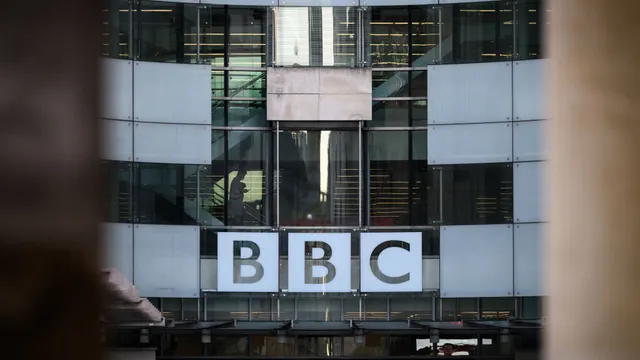
BBC faces backlash for labeling Muslim converts as reverts
2025-04-06 08:30- The BBC has faced backlash for how it has labeled Muslim converts during its programming and reporting.
- Derogatory remarks by a BBC Arabic journalist regarding Jews have added to the controversy surrounding the broadcaster.
- Critics warn that using terms like 'reverts' risks alienating moderate British Muslims and oversimplifying complex religious identities.
Express your sentiment!
Insights
In recent weeks, the BBC has faced significant criticism for its portrayal of Islamic faith and practices in the UK, particularly in relation to the terms used for Muslim converts. Accusations of biased reporting arose after the publication revealed that a BBC Arabic journalist had made derogatory remarks about Jews and Israelis shortly after the events of October 7, indicating a troubling pattern in coverage. This situation escalated when the BBC's choice to describe Muslim converts as 'reverts' led to accusations of spreading Islamist propaganda, as this term implies a belief that everyone is inherently Muslim. Such terminology has raised concerns among various groups, particularly those within the British Muslim community who strive for integration within wider British society, as it fosters a narrative that could inadvertently alienate moderate Muslims. Critics argue that the BBC's framing of Islam in a predominantly positive light, especially during the overlap of significant religious observances like Lent and Ramadan, contributes to a lack of balance in public discourse regarding religion, obscuring more complex conversations about religious identity and personal freedom. Recent promotions by official bodies celebrating Islamic events have further illustrated this point, prompting questions about the implications of such endorsements on immigrants from countries with oppressive religious laws. There is a growing unease regarding the potential backlash against Muslims in the UK, especially as the portrayal of Islamic practices continues to rely heavily on terms and narratives that don't account for the diverse experiences of British Muslims.
Contexts
The impact of BBC terminology on the Muslim community is a crucial area of study, particularly in understanding how media language shapes perceptions and societal attitudes. The BBC, as a leading global broadcaster, has a significant influence on the narrative surrounding various communities, including Muslims. Terminology used by the BBC can either promote understanding and tolerance or contribute to misinformation and prejudice. Accurate representation is essential not only for fostering positive relations but also for ensuring that the rich diversity of the Muslim community is acknowledged and respected. Terms that are loaded with negative connotations or stereotypes can lead to stigmatization and marginalization, which can have real-world consequences for the individuals within these communities. It is vital for the BBC to maintain sensitivity to the preferred terminologies and narratives that accurately reflect the experiences of Muslims globally. This includes recognizing the distinction between different groups within the Muslim community versus using broad, homogenizing terms that do not reflect the diversity of beliefs, practices, and cultures within it. Furthermore, the responsibility of the BBC extends to ensuring that its language does not inadvertently align with extremist or xenophobic rhetoric which often pervades public discourse regarding Islam and Muslims. The repercussions of using inflammatory language extend beyond media narratives, impacting social cohesion, public safety, and personal relationships among community members. By engaging with members of the Muslim community and involving them in discussions about representation, the BBC can cultivate a more accurate and balanced portrayal. The wide-reaching implications of media terminology necessitate an ongoing dialogue about its use and a commitment to equity in representation. Essentially, the terminology employed by the BBC has the potential either to bridge gaps between communities or to widen them, making it crucial for the organization to remain vigilant in its choices of language and its commitment to inclusivity. The impact of this terminology resonates well beyond journalism; it sets a precedent for how Muslims are viewed and treated in broader society.